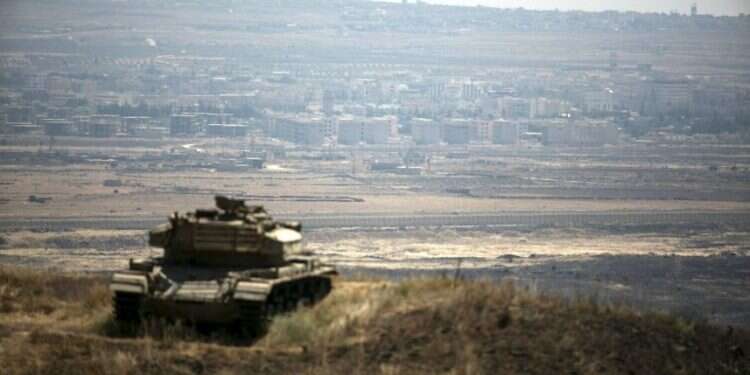Syrian government forces pounded rebel-held areas in the country's southwest with artillery on Thursday, in a steady escalation by President Bashar Assad, who has vowed to win back the area bordering Jordan and the Israeli Golan Heights.
The Syrian Observatory for Human Rights said 12,500 civilians had fled the town of Busra al-Hariri and nearby areas of Deraa province in the last two days. Rebel officials gave conflicting assessments of the scale of displacement.
A major government offensive in the southwest risks further escalating the seven-year-old war. The United States has warned that it would take "firm and appropriate measures" in response to government violations of a "de-escalation" deal it brokered with Russia last year to contain the conflict in the southwest.
The conflict has pivoted toward the southwest since Assad, with critical help from his Russian and Iran-backed allies, crushed the last remaining pockets of rebel-held territory near Damascus and the city of Homs.
Although he has vowed to win back the area, a military campaign to recover it is set to be complicated by the interests of both U.S.-allied Jordan and Israel, which is deeply alarmed by Iran's role in Syria.
The U.S. State Department said it was "deeply troubled by reports of increasing Syrian regime operations" in the area.
"Syrian regime military and militia units, according to our reports, have violated the southwest de-escalation zone and initiated airstrikes, artillery, and rocket attacks," spokeswoman Heather Nauert said in a statement.
She warned both the Russian government and the Assad government of "serious repercussions" of the violations.
She said Secretary of State Mike Pompeo had relayed that message to Russian Foreign Minister Sergey Lavrov by phone over the weekend.
While Syrian government forces have deployed artillery in the attacks so far, there have been few airstrikes. Air power has been critical in helping Assad defeat rebels in places such as Aleppo and eastern Ghouta.
The Syrian state news agency SANA said the army was carrying out "focused artillery strikes" on militant positions in the towns of al-Harak and Busra al-Harir. State media said rockets fired by rebels from the Deraa area had killed two people in the government-held city of Sweida to the east.
Col. Nassim Abu Arra, a rebel commander who heads the Youth of Sunna Forces, said government forces seem intent on capturing Busra al-Harir and the surrounding area, where he said shelling had escalated to a degree.
Abu Bakr al-Hassan, a spokesman for rebel group Jaish al-Thawra, described the shelling in the southern area as heavy.
"The civilians are afraid that the random bombardment is the start of a campaign the regime and the Iranian militias have been planning to launch in the south," he told Reuters.
Jens Laerke, the U.N. humanitarian spokesman in Geneva, said the United Nations is "concerned about reports of an escalation of violence in Deraa governorate [that is] endangering civilians and displacing hundreds of families."
Earlier this month, Assad said the government, at Russia's suggestion, was seeking to strike a deal in the southwest similar to agreements that have restored its control of other areas through withdrawals of rebel forces.
But he also said there had been no results yet and blamed "Israeli and American interference."
He said the territory would be recovered by force if necessary.
The rebels have vowed not to surrender "an inch" of the territory to Assad, one of their commanders said this week.
Rebel groups have responded by establishing a joint operations command to coordinate their defense of what the opposition refers to as the "death triangle."
Assad told Iranian TV last week that talks between the Russians, the Americans and the Israelis were still "ongoing," but said the Iranian presence in the area was not negotiable.
Israel is believed to be seeking an agreement in which Iran and its allied militias would withdraw from the border area.
The Syrian observatory later reported that a deal was reached, based on Russia's mediation, in which Iranian advisers and Iranian-backed militias would withdraw, leaving a buffer of 40 kilometers (25 miles) from the Golan Heights and the Jordanian border. The withdrawal, if confirmed, would be in line with negotiations led by Moscow.
In Syria, an official with the so-called axis of resistance led by Iran and including Syria and Hezbollah, denied a deal had been reached.




